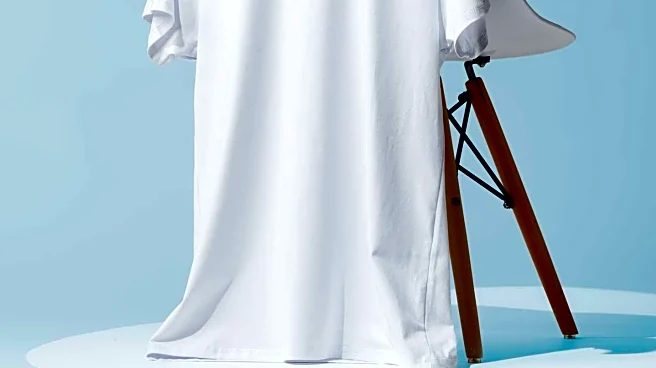What's Happening?
Circular fashion is a business model in which products are designed, produced, and sold with the intention of being used and reused for as long as possible. This model contrasts with the traditional linear
model of 'Take-Make-Waste,' which consumes resources and produces pollution and waste. Circular fashion aims to close the loop of clothing production by eliminating waste and pollution. Circular products are designed to last, repairable and upgradable, and made from recycled or renewable materials. Brands can implement initiatives such as repair services, rental services, and resale through the second-hand market to extend the life of their products.
Why It's Important?
Circular fashion products are significant as they address the environmental challenges posed by the fashion industry, known for its significant carbon footprint and contribution to landfill waste. By promoting the reuse and recycling of materials, circular fashion can help decrease the industry's carbon emissions and reduce the amount of waste sent to landfills. This model encourages consumers to value quality over quantity, potentially leading to a shift in consumer behavior towards more sustainable purchasing decisions. As brands adopt circular practices, they can benefit from cost savings through reduced material usage and waste disposal fees, while also gaining a competitive edge in a market increasingly focused on sustainability.
What's Next?
As circular fashion gains momentum, more brands are expected to adopt its principles, leading to a transformation in the fashion industry. This shift may result in increased investment in recycling infrastructure and sustainable material innovations. Additionally, policy support for circular fashion initiatives, such as extended producer responsibility laws, could further drive the adoption of circular practices. The transition to a fully circular fashion industry will take time, but the growing consumer demand for sustainable products suggests a promising future for circular fashion.
Beyond the Headlines
Circular fashion not only addresses environmental concerns but also presents ethical and cultural implications. By promoting transparency in supply chains and ethical labor practices, circular fashion can contribute to improved working conditions and fair wages in the industry. Furthermore, the emphasis on durability and repairability challenges the fast fashion paradigm, encouraging consumers to appreciate the craftsmanship and longevity of their clothing. This cultural shift towards valuing quality and sustainability over disposability could lead to long-term changes in consumer attitudes and behaviors.










